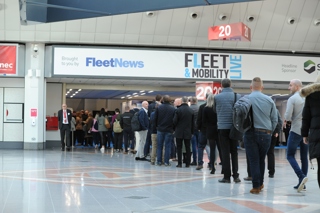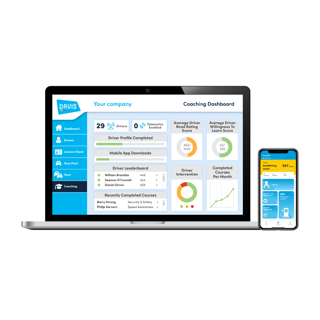The most popular fuel-saving actions among fleets are using fuel cards, increasing the number of lower CO2/high-mpg vehicles on the fleet, encouraging drivers to fill up at supermarket forecourts, checking tyre pressures and issuing drivers with tips on driving more fuel efficiently.
However, some fleet operators are taking a more proactive approach than others.
One fleet has adopted 18 different methods to reduce its fuel bill, for instance, while some are only taking one or two actions.
Fleets of more than 500 vehicles are typically taking seven or more actions while fleets of less than 50 vehicles are taking four actions, perhaps indicating their lack of resource to focus on fleet initiatives.
“With fuel costs continuing to increase, fleet managers must be proactive in their management of these costs and there are a range of initiatives that can be introduced to help,” says one fleet manager.
David Graham, fleet manager at Eon adds: “Fuel costs, like all costs, can be managed.”
First – the quick wins
Arguably the easiest step to take is to avoid gas-guzzlers and opt for lower CO2/high-mpg vehicles.
Many companies – and drivers – adopted this approach after the Government linked benefit-in-kind tax to CO2 emissions back in 2002 while manufacturers developed lower-emitting vehicles with improved fuel consumption to meet European legislative requirements.
Many manufacturers also now offer eco brands which feature wide-ranging technology such as stop/start and brake regeneration to further improve fuel efficiency.
Changes to capital allowances have seen the majority of companies introducing a CO2 emissions cap of at least 160g/km and there are further taxation savings by opting for even lower-emitting vehicles.
Some fleets, such as The Countryside Council for Wales, now have a sub-100g/km policy – cars that typically return around 75mpg for diesel and 63mpg for petrol.
Of course, whether drivers achieve manufacturers’ claimed mpg figures is another matter. Fuel cards – which 70% of survey respondents say they use – monitor the figures drivers are achieving and highlight which might be costing the company more money.
Variations in mpg figures for similar vehicles should be reported back to drivers and their line managers.
And the differences can be substantial. A telematics trial on Fleet News owner Bauer’s fleet showed a variation between drivers of an Audi A3 1.6-litre TDI of 45mpg to 60mpg.
Over the course of a 15,000-mile year, the cost differential is £530.
Fuel cards can also help prevent fuel fraud, analyse what price drivers are paying and whether they are filling up with premium fuel, as well as where they are refuelling.
“Look for outlets that are consistently cheaper in your area,” Peter Bonney, fleet controller at The Salvation Army, advises.
Many respondents discourage or ban drivers from filling up at expensive motorway service stations.
Jeff Addley, fleet and stores manager at HVMS, sends drivers the national average price for unleaded and diesel and asks them to keep within 4ppl where possible.
Drivers are allowed to refuel at motorway services in exceptional circumstances but a 15-litre limit is imposed.
Half of survey respondents encourage drivers to fill up at supermarket forecourts, as these tend to be the cheapest locations.
Inspired Gaming Group has shown it is possible to change driver behaviour, with 95% of its fuel consistently purchased at supermarkets. But this approach can backfire if drivers travel miles out of their way to refuel.
“We tell drivers not to drive 20 miles to save 20 pence,” Tony Witterick, fleet administrator at Coast and Country Housing, says.
“We advise drivers to refuel en route and on a weekly basis we inform them which is the cheapest place to refuel in their area.”
Witterick has also negotiated a discount with his fuel card provider, which is another advantage of using certain types of fuel card.
Brendan Gott, group operations manager at Rigby Taylor, which has 62 company cars, says his fuel card provider guarantees to be competitive and has one price nationally.
“Our previous fuel card provider kept putting their prices up,” Gott says.




















Login to comment
Comments
No comments have been made yet.